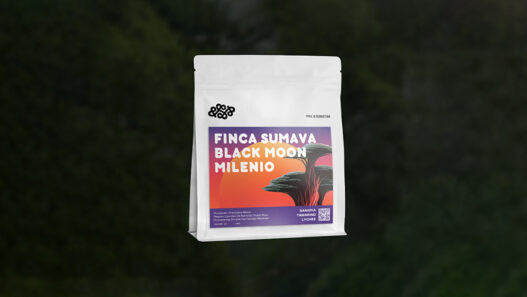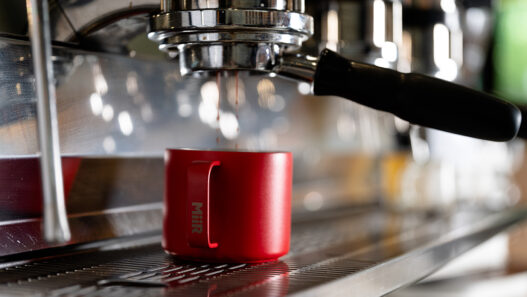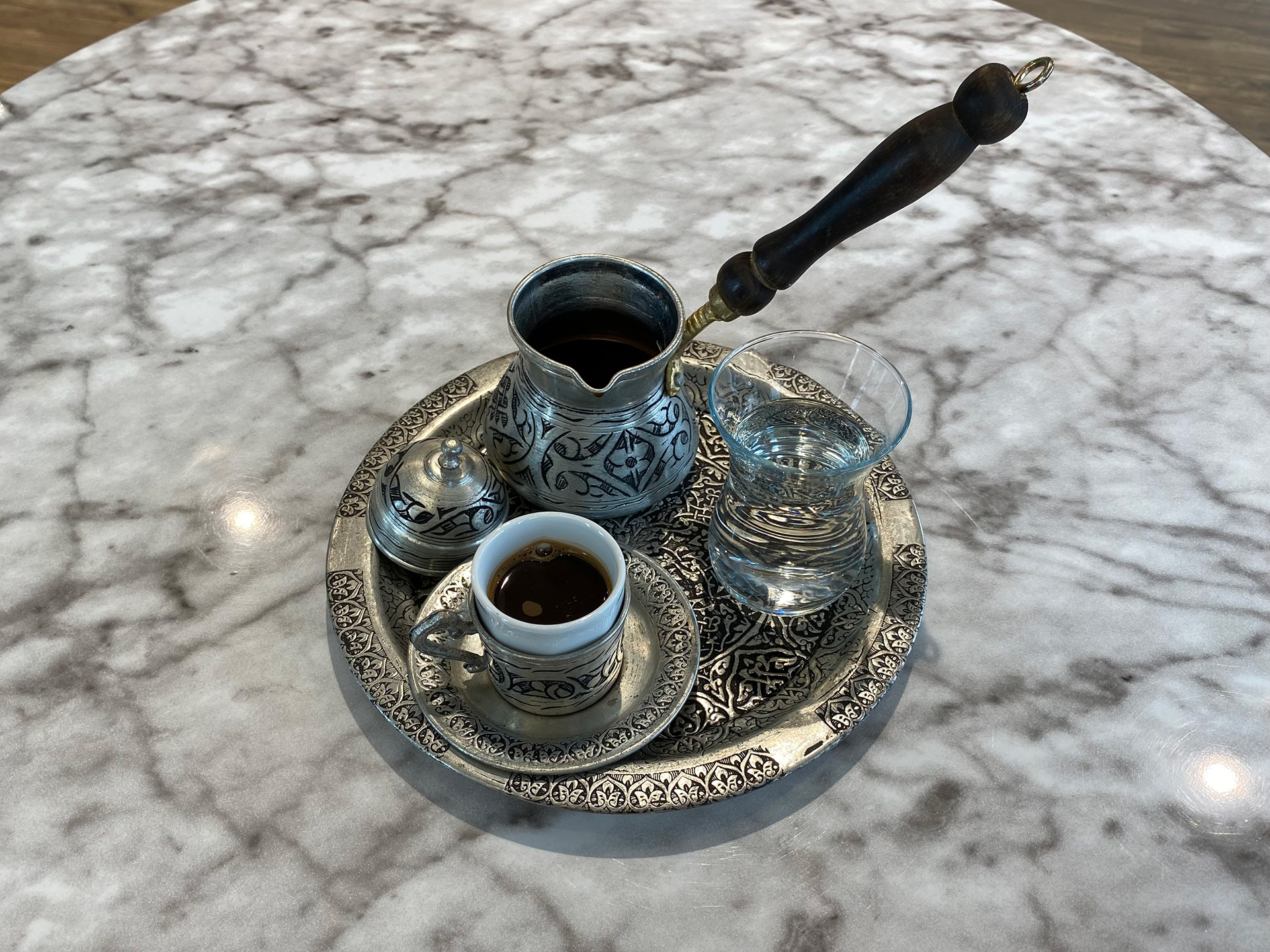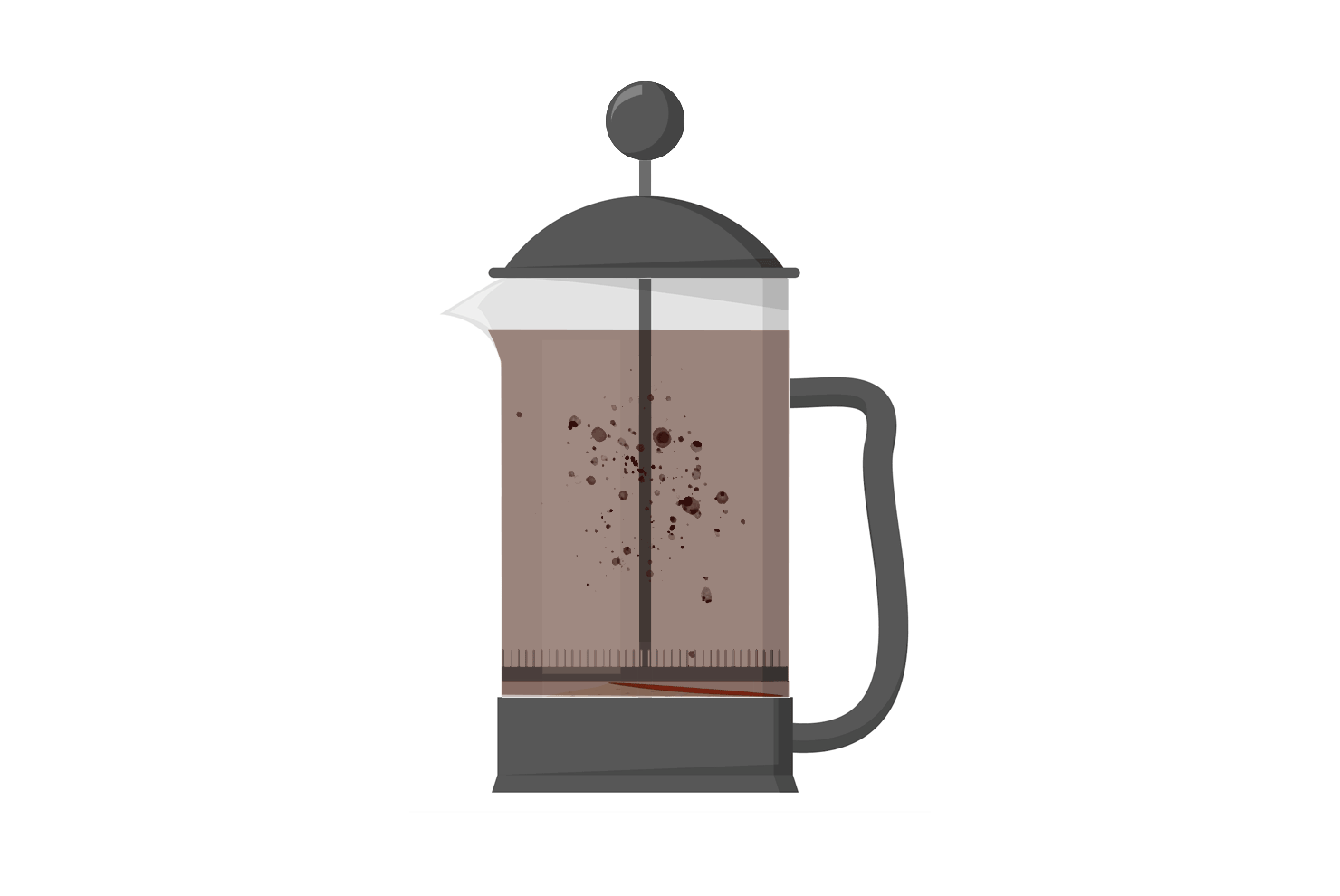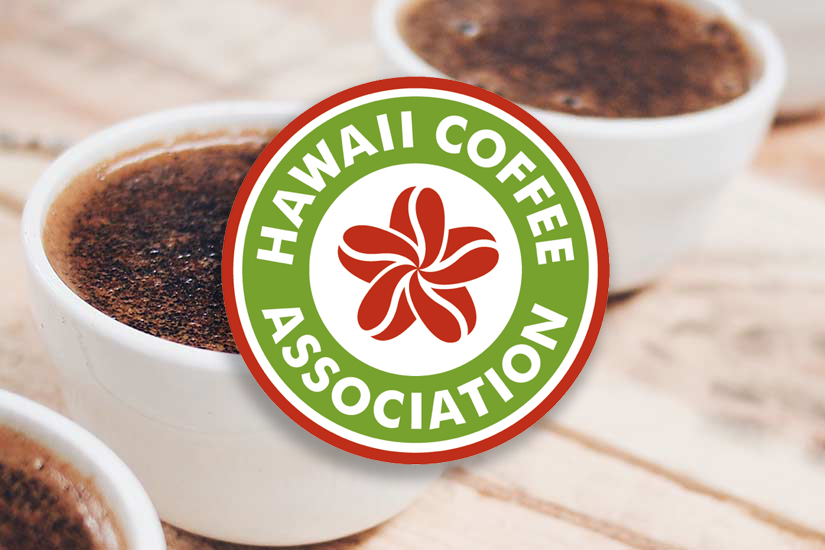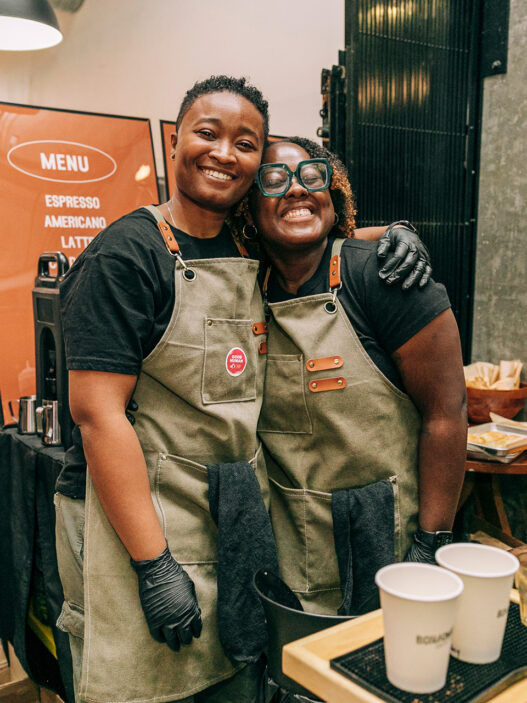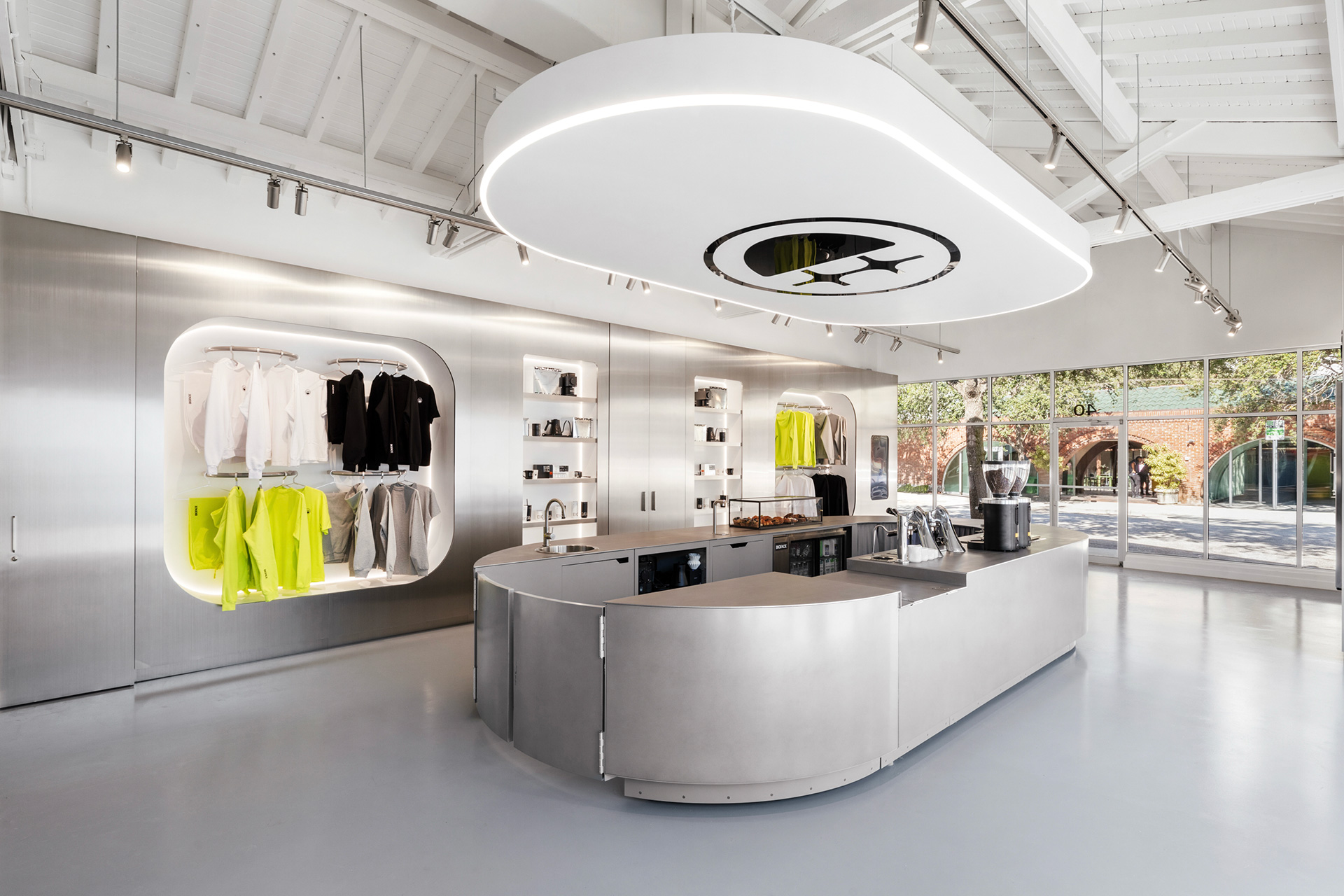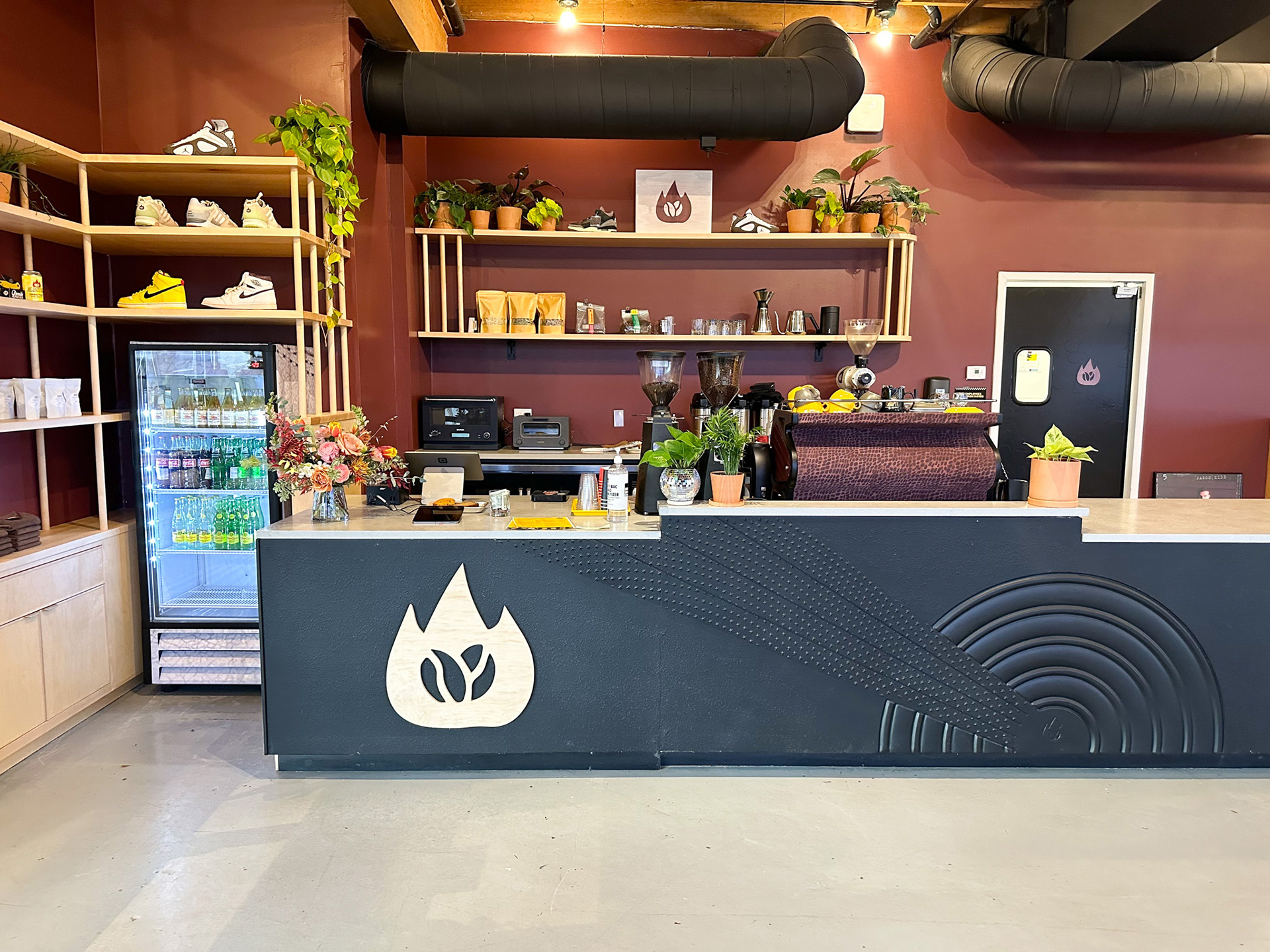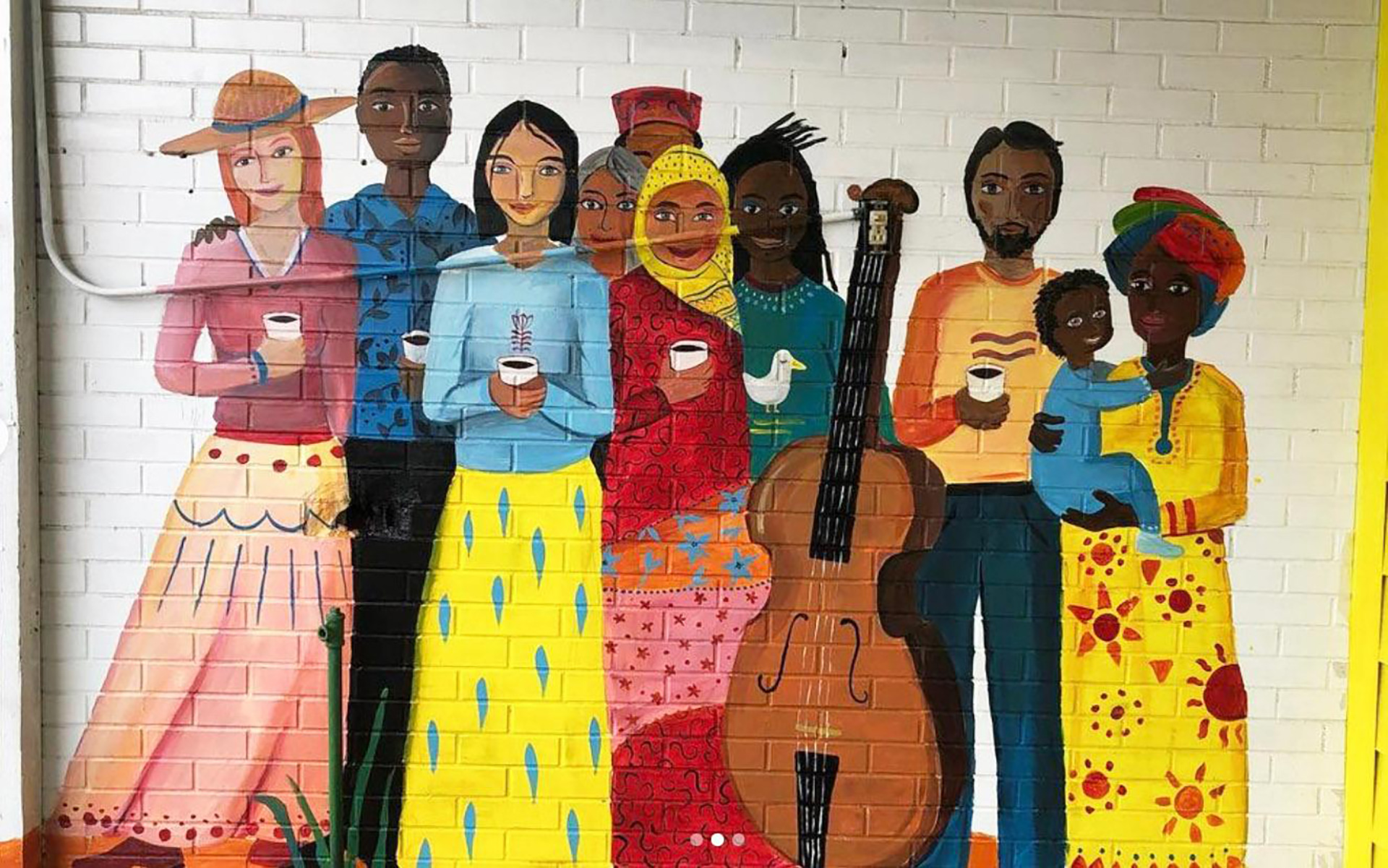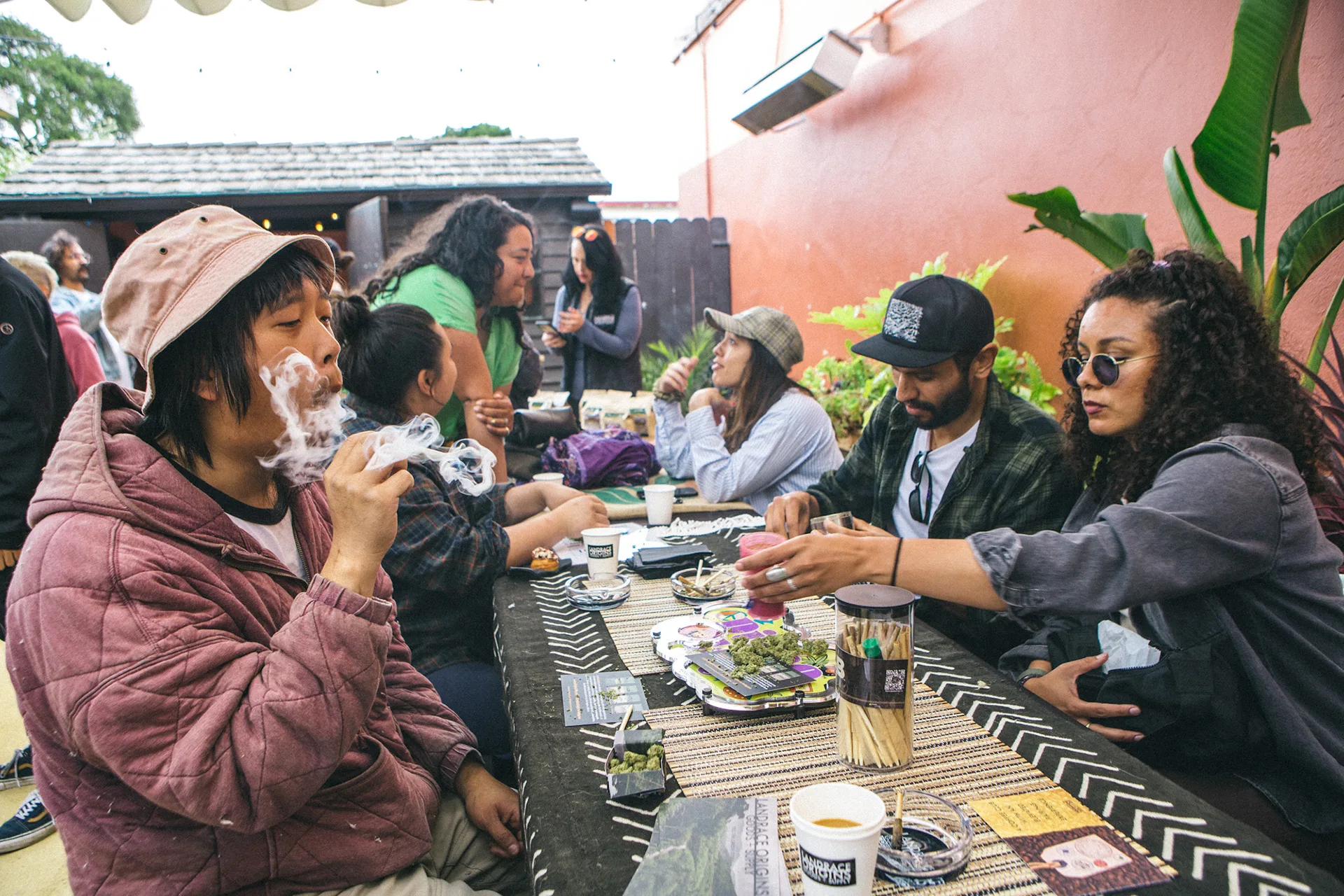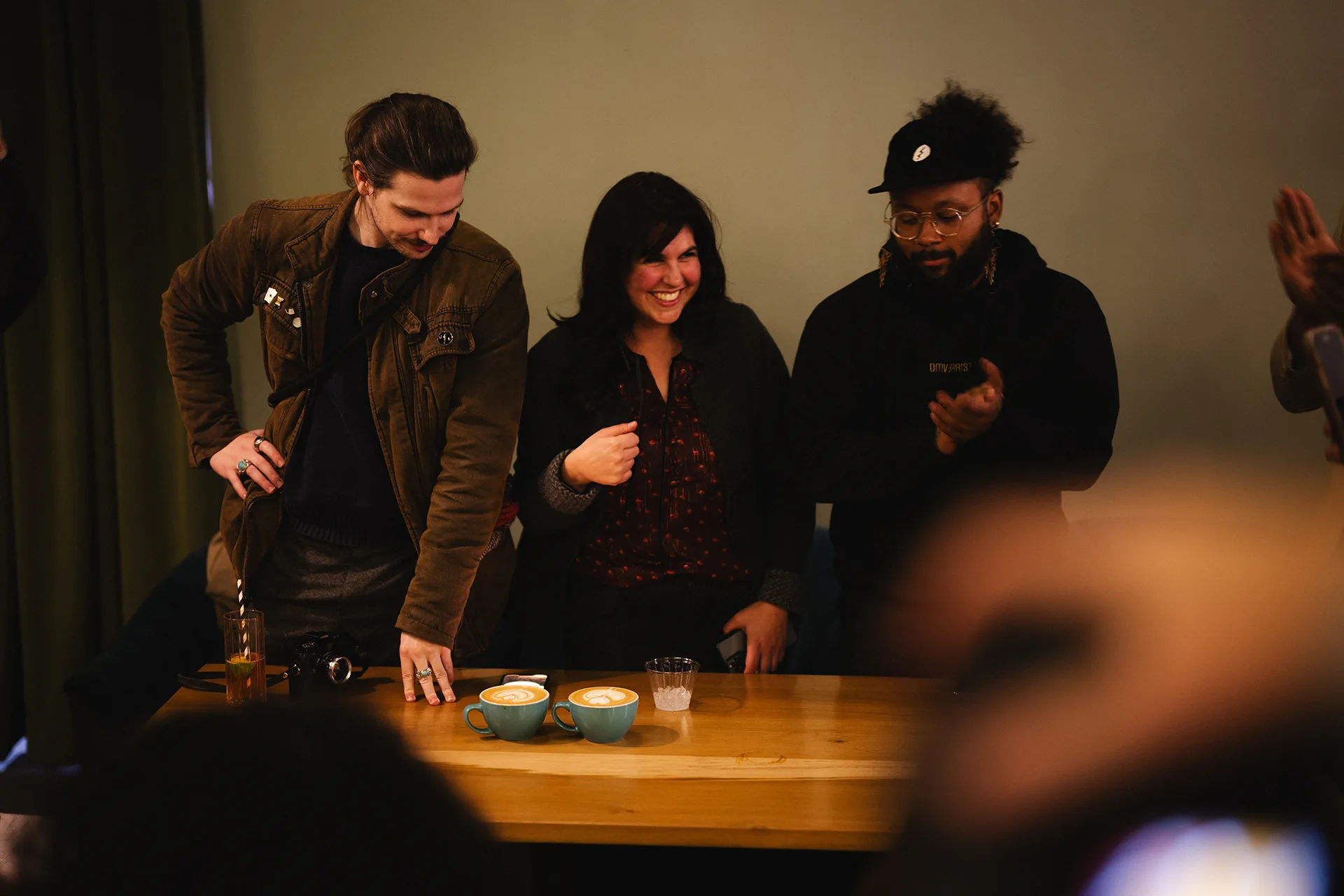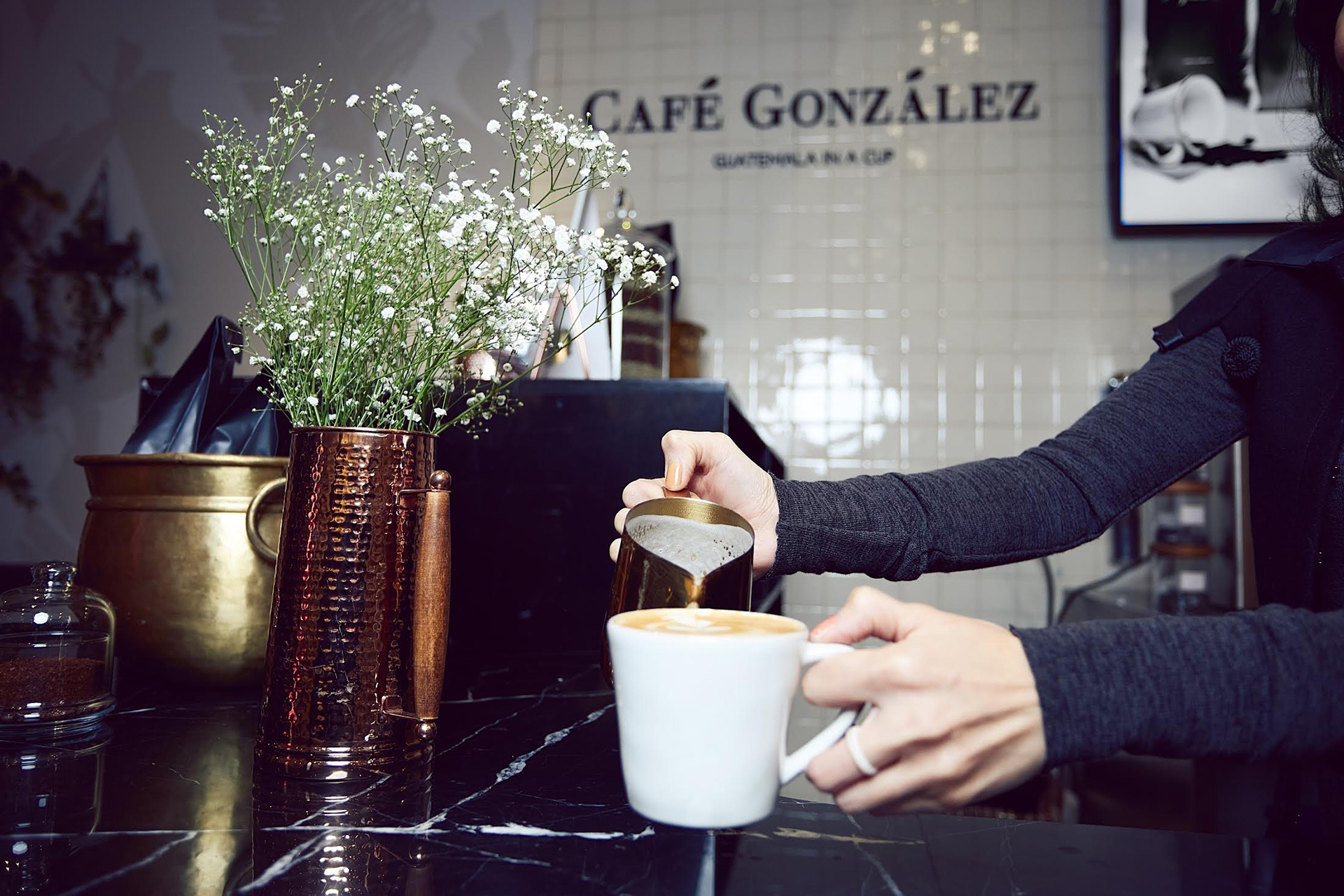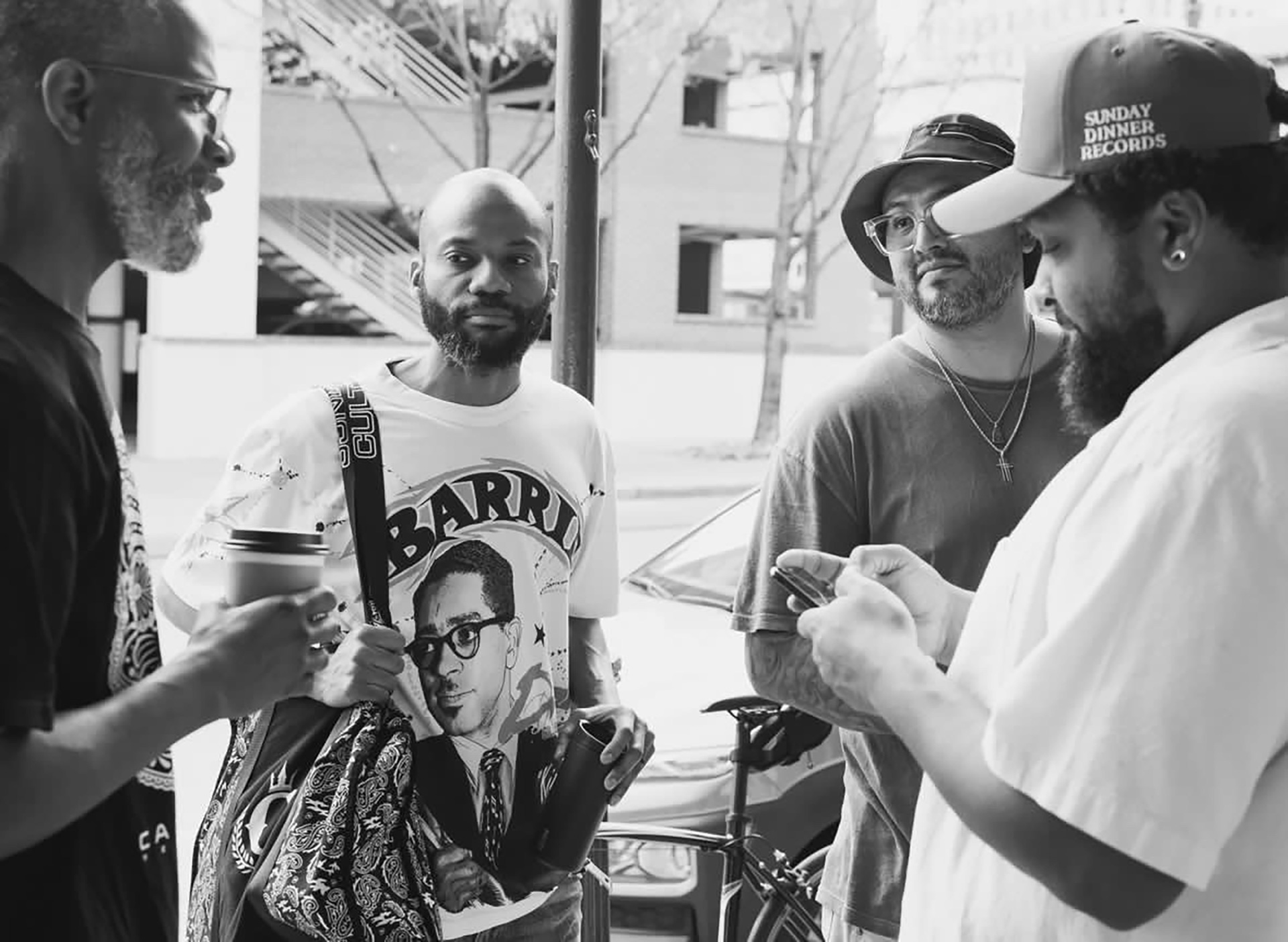One of the most time honored forms of coffee brewing in the world is Turkish coffee, also referred to as cezve or ibrik. With roots dating back to the 16th century, it is one of the most ancient methods of coffee preparation, predating modern luxuries such as paper filtration and pressure profiling espresso machines. The drink is so much a part of the culture of Turkey that their word for breakfast, Kahvalti, literally translates to “before coffee.”
Pax & Beneficia is a specialty coffee shop based in the Dallas-Fort Worth area of Texas, where the art and deliciousness of traditional Turkish coffee is placed in a modern context, at a contemporary coffee bar with global echoes. It was founded by Mouyyad Abdulhadi, a marketing specialist, and Dr. Mamdouh Khayat, a noted vascular radiologist, both of whom are first-generation immigrants from Palestine to the United States. The name translates to “peace and blessings.”
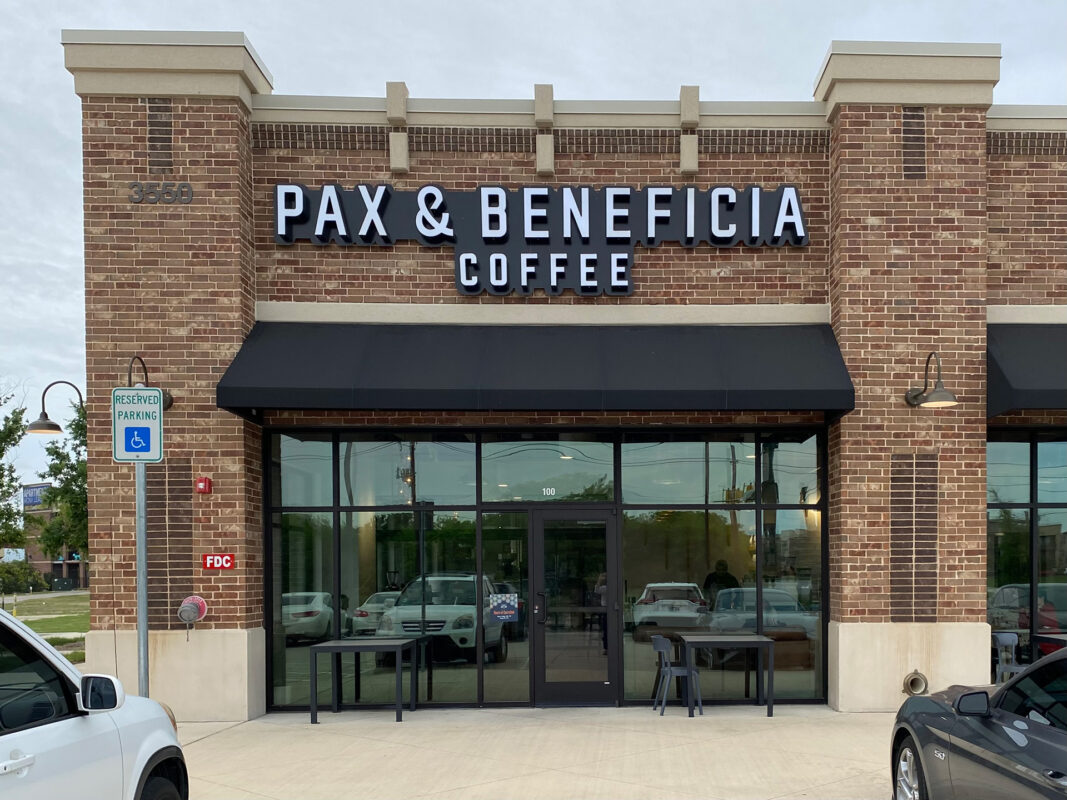
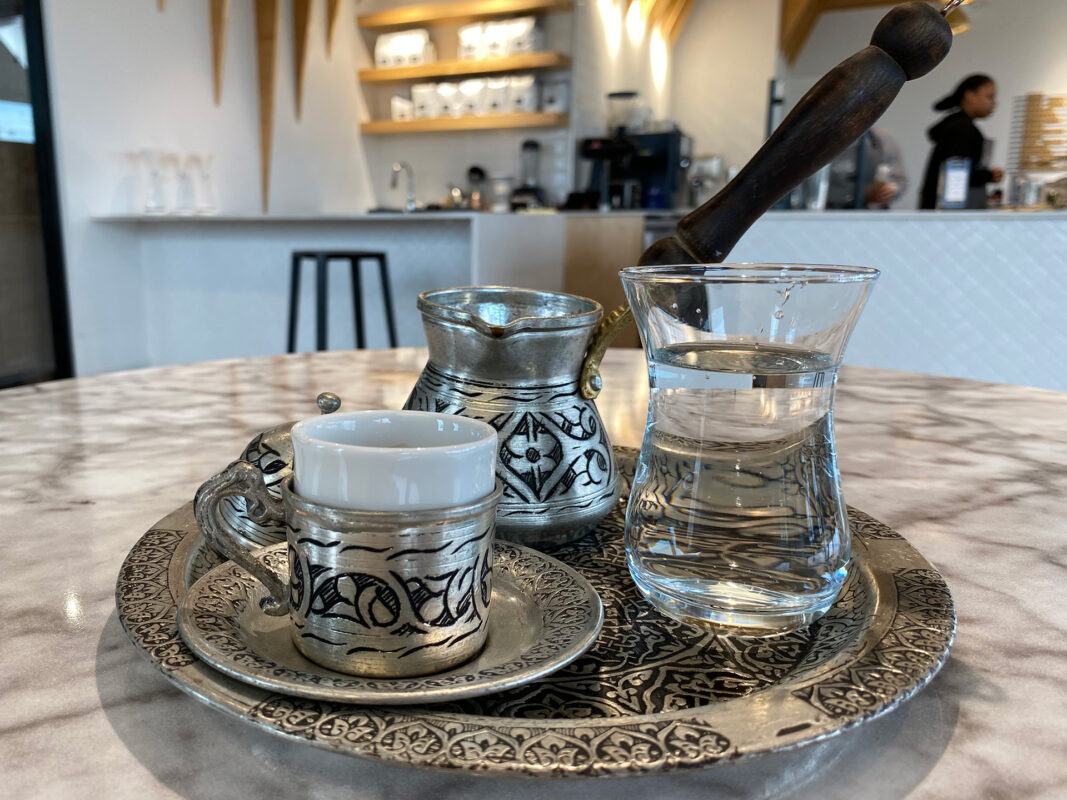
For many cultures across the world, coffee represents a sense of home and familiarity, and a way of breaking down barriers between others.“Certainly Turkish coffee is an important element in our culture,” Dr. Khayat tells me. “It evokes emotions of hospitality. It was important for us to incorporate this cultural element in our cafes.”
“As immigrants, we remember discreetly early memories of coming to this beautiful country, uncertain of tomorrow and incapable yet of speaking English,” continues Khayat. “Despite humble beginnings, our parents’ hospitality overcame all poverty. I distinctly remember the kitchen air imbued with the aroma of freshly brewed Turkish coffee, as conversations were shared between two families and these bonds ultimately formed.”
Khayat and Abdulhadi are serving a pretty traditional version of this coffee style at Pax & Beneficia, modeled on how they grew up drinking coffee in their own homes. Finely ground coffee is boiled using the long-handled irbik pot; there is no filtration, and a steady boil helps full integrate the coffee and water into an ambrosial beverage. There is also a fully modern coffee bar in addition to the traditional service at Pax, with gear by La Marzocco, Hario, and Mahlkonig.
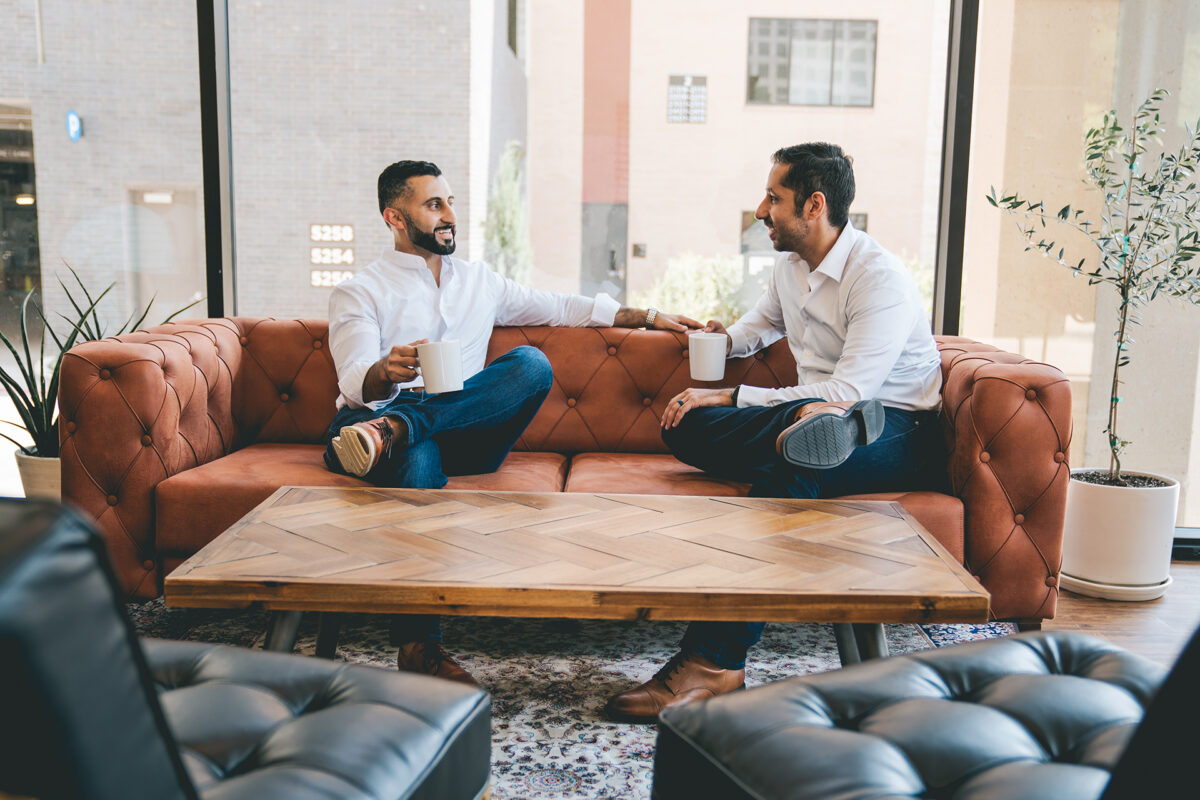
Across the world, Turkish coffee can be found with a multitude of different additives to accentuate the brew. Oftentimes these are spices and sugars that are combined with the coffee while it is brewing. Whether one or the other is added can come down to local tradition, and the founders of Pax opt for the addition of cardamom into the brew, modeling this on how coffee was served growing up at home. “For us, our tradition is to combine finely ground Turkish coffee with ground cardamom,” says Khayat. “The subtle and aromatic spice of cardamom complements and elevates the coffee. The velvety elixir of ground coffee and cardamom slowly infuse any room with its earthy scent.”
Taking something such as Turkish coffee, an object of both personal and cultural importance to a new place and serving it to a new audience can be a daunting task. However, Khayat doesn’t see it that way. He says, “That initial encounter is the inception of the hospitality we hope to exude. These conversations open doors to other cultures and traditions previously unknown, in hopes of cultivating camaraderie and fostering community, together.”
Moreover, Khayat spoke to the reception of Turkish coffee being on their menu. “Thankfully, the vibrant and culturally diverse community [here in Dallas-Fort Worth] has welcomed Turkish coffee openly. People are receptive to the idea of expanding their palate with a more global interpretation of coffee preparation.”
For Khayat and Abdulhadi, Turkish coffee started as a way to connect with the world around them and build community, while respecting their traditions. You’ll find this exhibited with uncommonly beautiful and deep hospitality at Pax & Beneficia.
Daniel Paskill is a coffee professional and freelance journalist based in Dallas. This is Daniel Paskill’s first feature for Sprudge.




